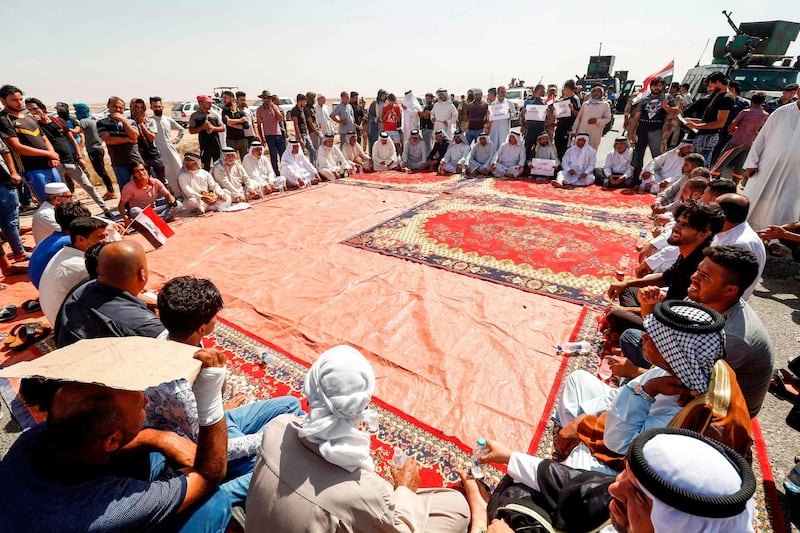Tomorrow the clock will be set on a process which aims to restore stability and a way forward for Iraq, left faltering in the four months since its controversial election in May yielded neither a clear outcome nor a definitive leader.
In less than 90 days, the country must have a new president and prime minister in a process outlined in the constitution, with a hard deadline.
The need for a clear direction weighs heavily on a nation riven for years by sectarian divides, corruption and, most recently, protests over failing public services, particularly in Basra, where citizens cannot even access clean water.
Until Iraq’s new leaders are sworn in, it can only hope to muddle through a crisis which threatens to envelop the country and provide fertile ground for its weak links to be exploited by those with malevolent intent.
There are already signs of that happening, with intelligence sources confirming Iran is supplying ballistic missiles to its proxies in Iraq and developing weapons bases to target its Middle Eastern foes.
The weapons factories put Riyadh and Tel Aviv within striking distance, a matter of deep concern to regional security. Iran has also been transferring missiles to Syria and its allies in Yemen and Lebanon.
Its latest forays in Iraq can only be interpreted as Tehran’s attempts to connect the dots in building a crescent of influence running through the region.
This is a moment which must be seized to reaffirm Iraq’s sovereignty and its right to a moderate, prosperous governance, without interference.
Relations with Tehran are inevitable. The two countries share a 1,500-kilometre border and Iran is Iraq’s second largest trading partner after Turkey, supplying power, fruit and vegetables. However, having relations does not mean calling the shots.
It is not yet clear what a future government might look like. Cleric Moqtada Al Sadr, whose Sairoon bloc secured the largest portion of the vote, is in the process of forging alliances.
His quartet, made up of Prime Minister Haider Al Abadi’s Victory bloc, Amar Al Hakim and Ayad Allawi, is still short of forming a majority.
Whatever the outcome, the fractures between the different blocs cannot be allowed to form into fissures deep enough to be exploited by Tehran to build on its own power base.
The longer this drags on, the greater the vacuum of power at risk of being manipulated.
A definitive direction with strong leadership to protect Iraq’s sovereignty and people cannot come soon enough.





